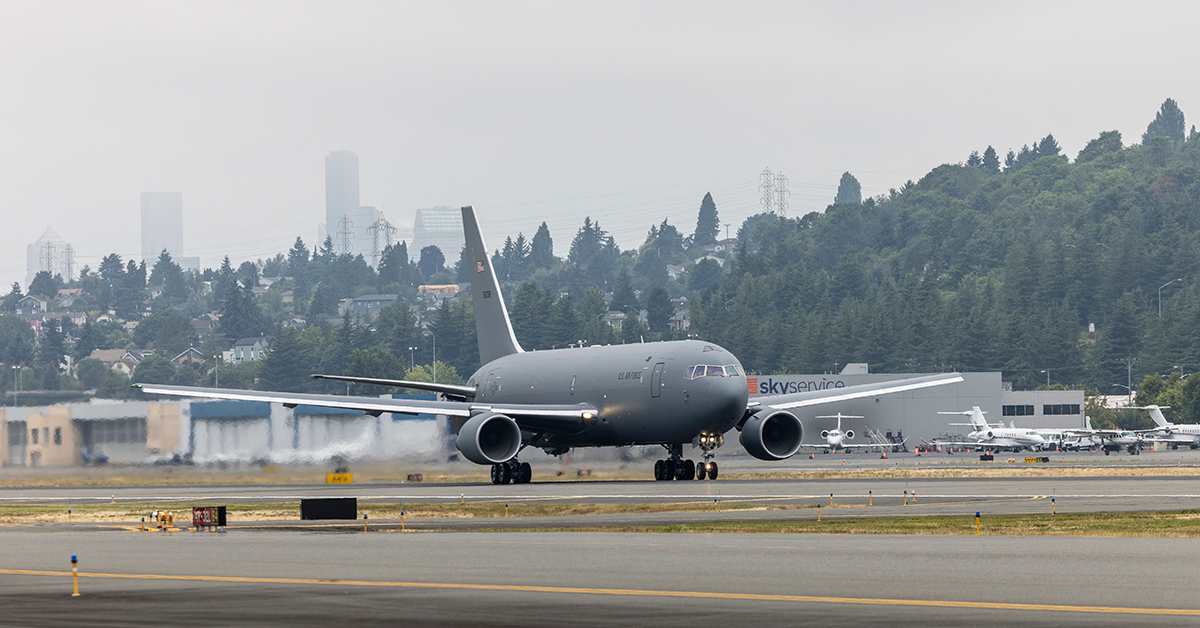The U.S. Air Force transported its first KC-46A Pegasus aircraft from Boeing’s facility in Seattle to the Travis Air Force Base in California.
The aerial refueling plane will be housed in a $136.2 million hangar that the service branch completed in May, according to USAF.
The flight was led by Maj. Gen. Joel Jackson, commander of the Air Force District of Washington, with the participation of members of the 60th and 349th Air Mobility Wings units.
Moving forward, KC-46A will be in active operation by the 6th and 9th Air Refueling Squadrons, with the 70th and 79th Air Refueling Squadrons in reserve.
The aircraft features communication, defense and self-protection capabilities to enhance the connectivity, situational awareness and survivability of its crew especially in contested environments. It is designed to replace the KC-10 Extender as the refueling vehicle for Travis AFB.





